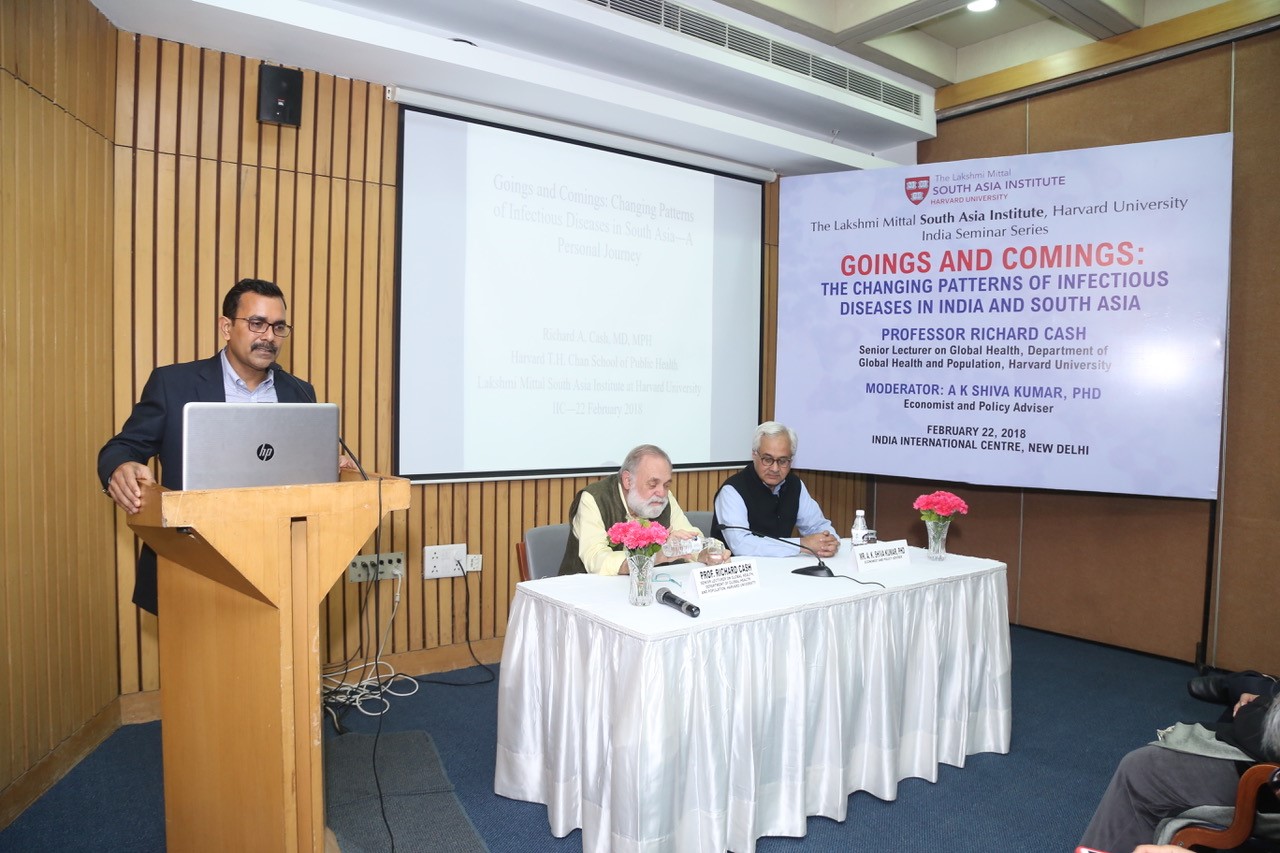The Mittal Institute’s new India Seminar Series, at our Delhi headquarters as a part of Harvard Global Research Support Centre India, is gathering steam. We have plenty of exciting events planned for Spring 2018 and will continue for the rest of the year and beyond. You can find all the details on our events page and by subscribing to our weekly newsletter.
Here, India Country Director, Sanjay Kumar, reports on the most recent event. On Feb 22, Dr. Richard Cash, Senior Lecturer on Global Health at the Harvard TH Chan School of Public Health, spoke about infectious diseases.
Dr. Cash began with a historical overview of the evolution of infectious diseases in South Asia during his 50 years working in the region. Smallpox, which once caused millions of deaths has disappeared, thanks to immunization. Mass immunization has also virtually eliminated neo-natal tetanus and polio and vaccines have dramatically decreased the incidence of measles and rubella. Other interventions have greatly reduced the incidence of diseases triggered by infections such as liver cancer (hepatitis B immunization), trachoma, and rheumatic fever.
Most new infections are zoonoses, which are diseases that spread from animals to humans. Cattle, apes, wild ducks and bats are the origin of diseases like measles, HIV, influenza, Ebola, and Nipah. He observed that the expression of new and re-emerging diseases is variable and that understanding the context is critical.
If a new virus develops efficient person-to-person transmission it could potentially lead to a new global pandemic. This is of particular concern regarding new strains of influenza virus, which, because it’s an airborne infection can be easily spread through global air routes. The short incubation period and the global shortage of vaccines (produced by somewhat out-dated techniques) further contribute to its spread.
The rise of new diseases can be very costly and have a significant economic impact on a country. Economic considerations can also affect control strategies. In the case of bird flu (H5N1) the Government of India based its control program on the culling of infected or exposed chickens. Farmers, however, received very little compensation after their chickens were killed so they stopped reporting outbreaks in their flocks. It is vital to evaluate the needs and values of the community and develop a structured program accordingly.
Dr. Cash focused on preventative measures to limit the development and spread of new and emerging infections. He compared India with neighbors like Sri Lanka to show how other countries have worked on community-based initiatives and dealt with public health. Publicity, awareness and a centralized information system help communities to understand where the diseases come from and how they spread. Without easy access to this information, outbreaks can. Inequality and poverty in India are risk major factors and need to be addressed if the development and spread of new and emerging diseases are to be limited and controlled.
A previous version of this article contained technical inaccuracies in our reporting of Dr. Cash’s talk – these have since been amended.
Mittal Institute Director Interviews Former Chairman of Pharmaceuticals Giant Cipla
Closely related to the issues raised by Dr. Cash’s talk in New Delhi, Dr. Yusuf Hamied told Professor Tarun Khanna, in an interview for Harvard Business School’s ‘Creating Emerging Markets‘ project, how and why he fought to supply cheap generic drugs to Indians and people from other emerging countries, breaking the dominance of large multinational pharmaceutical companies.

